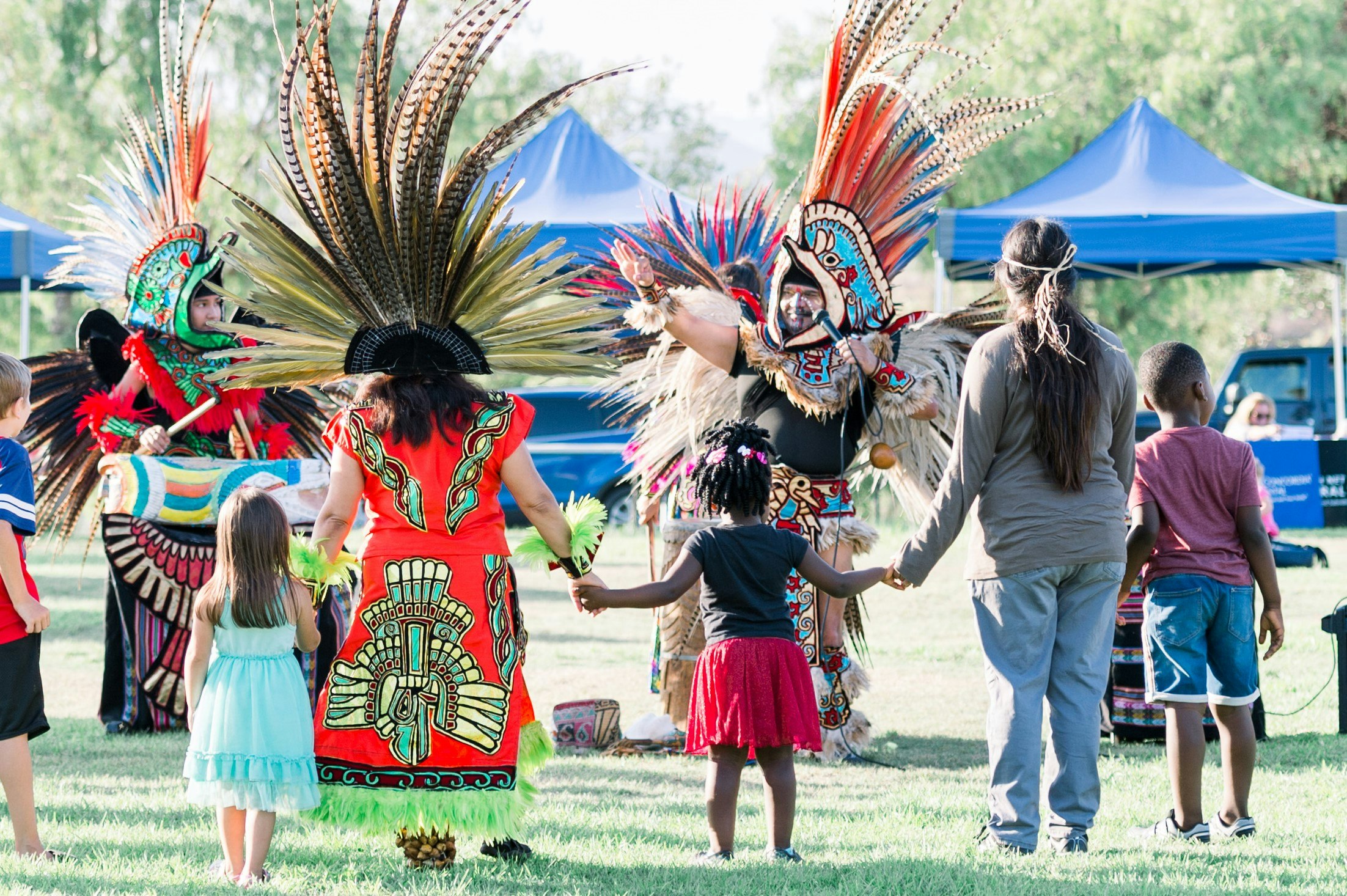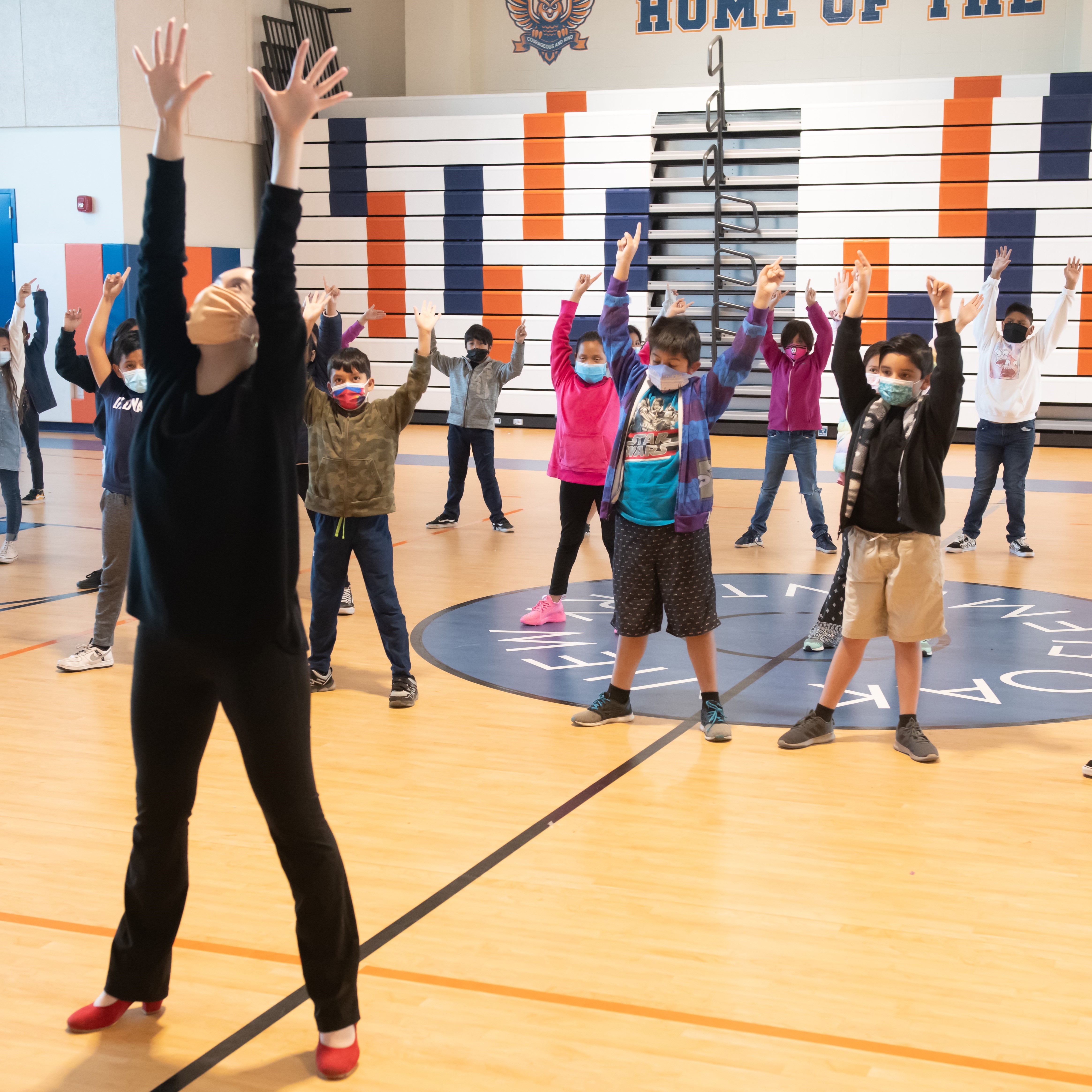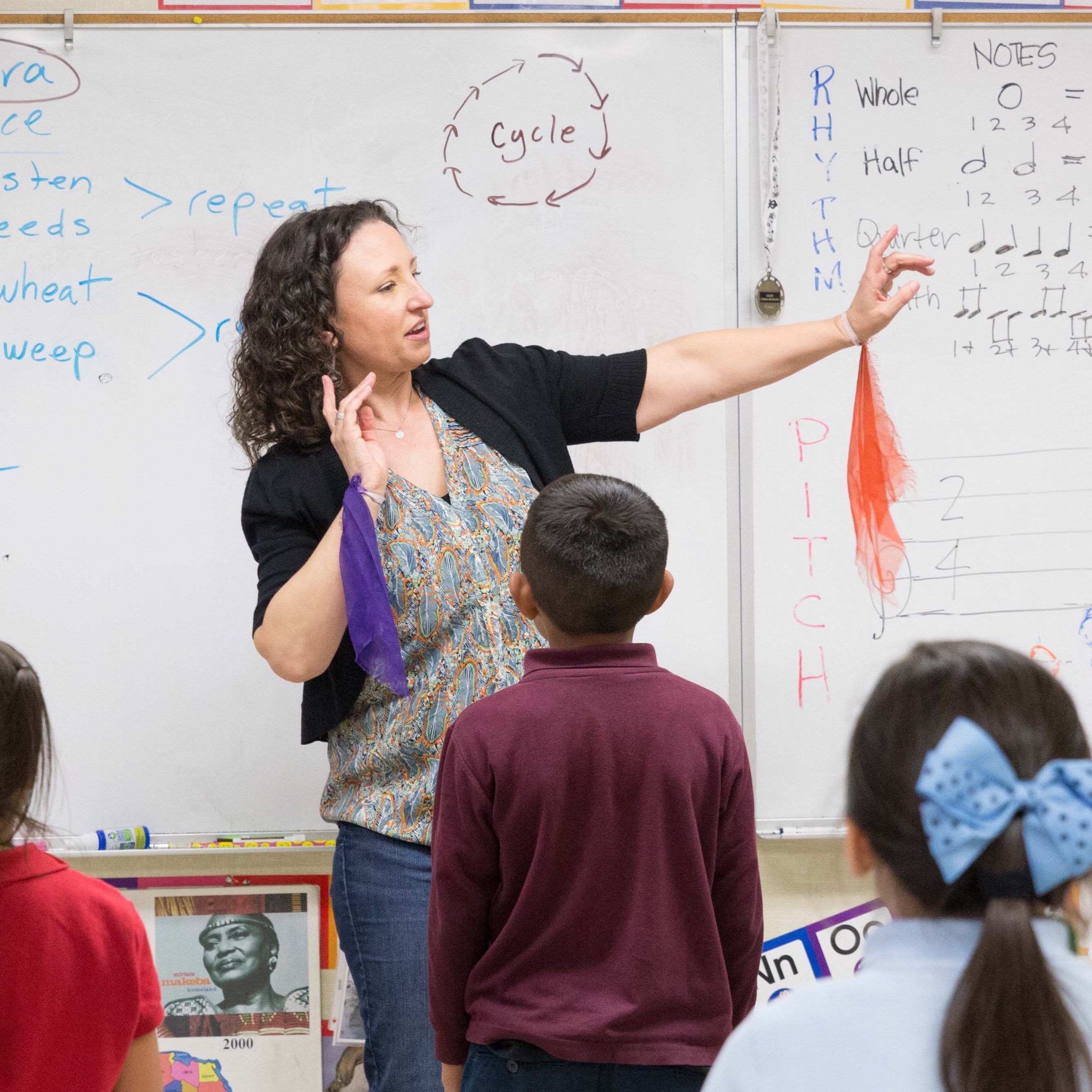
Why do we need arts programs in schools?
It is a federal requirement that every school across the nation provides curriculum standards-based arts instruction in dance, music, theater, and visual arts for every student. Arts education is valuable because it can help students engage with curriculum, reduce stress, develop social-emotional learning, foster the growth of interpersonal skills, and improve focus, ultimately contributing to students’ overall success at school and beyond.
What role does Segerstrom Center for the Arts play in providing arts programs to schools?
Segerstrom Center's arts education programs are intended to help schools put a plan and process in place that builds support for providing arts education programs in districts and schools. Concurrently, these unique arts experiences from the Center can further enhance a school’s pre-existing arts instruction, support school-wide initiatives, and reinforce classroom curriculum. Many school districts across the state have historically had insufficient—if any—arts programs in place. With increased arts funding being introduced, non-profit arts organization partnerships are, and will continue to be, an important and valuable resource in the educational landscape.
.jpg)
What kind of impact do arts programs have on teachers and students?
For teachers, there is no greater tool for classroom management than the arts–arts experiences motivate students to come to school and teach them an array of valuable skills during their participation. For students, the educational experience is enriched by the opportunity to be creative, thoughtful, empathetic, and to collaborate with their peers. As an ensemble, it gives both teachers and students a chance to make curriculum connections, receive exposure to unique art forms, understand one another's strengths and interests, and use imaginative methods to help one another grow while cultivating an inclusive classroom culture.
What is Arts Teach?
Segerstrom Center’s Arts Teach program offers a large variety of affordable programs in dance, music, theater, and visual arts that can be customized to meet the needs of each unique classroom, community, or event. Arts Teach has a roster of more than 60 professional teaching artists and educational performers, each of whom brings a unique arts background and has successfully cleared a fingerprint-based national background check.

What experiences does Arts Teach offer?

Assembly
Experience the thrill of a live performance with one of our world class artists. Explore new cultures, raise bullying awareness, relive history, and much more through these 45-minute performances.

Workshop
An introductory hands-on session taught by a master teaching artist. Workshops can complement classroom curriculum, teach new skills, and develop creative thinking.

Immerse yourself in an art form with a master teaching artist over the course of several weeks. With multiple hands-on sessions taught by the artist of your choice, you can take your experience to the next level and customize it to fit your specific goals and budget.
What do your teaching artists hope students take away from arts programming? Why do they believe this programming is so important?

“Because all of our work is story-based, it underscores and supports their language-arts learning: plot, character, setting, even the importance of a good problem in a story. But I’d say probably the most important takeaway is that it supports their social-emotional learning because mime is primarily a non-verbal art form”
- The Chameleons

“[Our] shows and musical teach kids different aspects of life: how to work together, team building, and dealing with difficult situations.”
– The Collaboratory

“Creating architecture is a great way to learn STEAM concepts like states of matter, geometry, and the way indigenous people adapt their buildings to their environment. Students work individually and collaboratively on my multimedia projects.”
– Paisley Ali

“Stories and storytelling are vitally important, especially at this time. It’s important that we respect and preserve the best of who we are and that we pass it on to others, and that we also are willing to share the good, the bad, the ugly, and the truth of who we are. Because when we do that, it helps us all to grow.”
– Victoria Burnett
